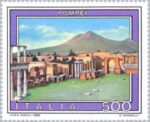A key element of education involves welcoming young students into traditions of public remembrance — within their families, their communities, and their nations. Here’s an example of how you can do that this week in your homeschool.
![[Space Shuttle]](https://collegiateway.org/images/news/2006-challenger.jpg) On January 28th in 1986, the Space Shuttle Challenger exploded just 73 seconds after its launch from Cape Canaveral in Florida. All seven members of the crew were lost: Francis Scobee, Michael Smith, Ronald McNair, Ellison Onizuka, Judith Resnik, Gregory Jarvis, and Christa McAuliffe.
On January 28th in 1986, the Space Shuttle Challenger exploded just 73 seconds after its launch from Cape Canaveral in Florida. All seven members of the crew were lost: Francis Scobee, Michael Smith, Ronald McNair, Ellison Onizuka, Judith Resnik, Gregory Jarvis, and Christa McAuliffe.
The Challenger disaster had a disproportionate effect on young people in the United States at the time because crew member Christa McAuliffe was the first “Teacher in Space,” scheduled to broadcast classroom lessons from earth orbit. Tens of thousands of school children across the country watched the launch on live TV and saw the explosion as it happened.
We mark the week of the Challenger anniversary each year with three texts — one poetical and two oratorical — that you can share with your students. The first is the famous poem “Sea-Fever” by the English poet John Masefield (1878–1967). It’s our homeschool poem-of-the-week for this last week of January.
Sea-Fever
I must go down to the seas again, to the lonely sea and the sky,
And all I ask is a tall ship and a star to steer her by,
And the wheel’s kick and the wind’s song and the white sail’s shaking,
And a grey mist on the sea’s face and a grey dawn breaking.I must go down to the seas again, for the call of the running tide
Is a wild call and a clear call that may not be denied;
And all I ask is a windy day with the white clouds flying,
And the flung spray and the blown spume, and the sea-gulls crying.I must go down to the seas again, to the vagrant gypsy life,
To the gull’s way and the whale’s way where the wind’s like a whetted knife;
And all I ask is a merry yarn from a laughing fellow-rover,
And quiet sleep and a sweet dream when the long trick’s over.
On the evening of the Challenger launch, President Ronald Reagan had been scheduled to deliver his annual State of the Union address to Congress. He decided to postpone that event and instead spoke to the nation on television, addressing in particular the school children who had seen the disaster unfold earlier that day: “The future doesn’t belong to the faint-hearted. It belongs to the brave.” Classical homeschoolers may recognize Reagan’s Challenger Address, like Lincoln’s Gettysburg Address and Pericles’ Funeral Oration, as an example of epideictic oratory. Drafted by Reagan’s speechwriter Peggy Noonan, it’s now widely regarded as one of the great speeches of the late twentieth century.
The final text, from the 1981 film Chariots of Fire, is the very short dinner speech given by the master of Caius College at Cambridge University to the college’s newly arrived students — young people not much older than your own students perhaps — just after the end of World War I in 1919. It begins as an epideictic address, and then finishes in a powerful hortatory manner.
I take the war list and I run down it. Name after name, which I cannot read, and which we who are older than you cannot hear, without emotion; names which will be only names to you, the new college, but which to us summon up face after face, full of honesty and goodness, zeal and vigor, and intellectual promise; the flower of a generation, the glory of England; and they died for England and all that England stands for.
And now by tragic necessity their dreams have become yours. Let me exhort you: examine yourselves. Let each of you discover where your true chance of greatness lies.
For their sakes, for the sake of your college and your country, seize this chance, rejoice in it, and let no power or persuasion deter you in your task.
The future doesn’t belong to the faint-hearted. It belongs to the brave.
Roger, go at throttle up.
What historical events have you and your students been remembering in your homeschool this Orion Term? ⭐️ ⭐️ ⭐️ ⭐️ ⭐️ ⭐️ ⭐️
❡ All I ask is a tall ship: If a special line or turn of phrase happens to strike you in one of our weekly poems, just copy it onto your homeschool bulletin board for a few days and invite your students to speak it aloud — that’s all it takes to begin a new poetical friendship and learn a few lovely words that will stay with you for life. 🌊
❡ The surly bonds of earth: Millions of Americans in 1986 would have immediately recognized the last lines of President Reagan’s speech, even if they couldn’t name the source. They are from “High Flight,” a poem by World War II aviator John Gillespie Magee Jr. (1922–1941) that has long been a favorite of both pilots and astronauts. A two-minute film that featured the poem was broadcast for many years as the nightly sign-off transmission by television stations all across the country. “High Flight” was later inscribed on the memorial to the Challenger Seven in Arlington National Cemetery in Washington. 🦅
❡ I am well versed in the classics, doctor: The line “All I ask is a tall ship and a star to steer her by” will long be remembered as the finest thing Herman Melville never said. 🌊
❡ Here, said the year: This post is one of our regular homeschool poems-of-the-week. Print your own River Houses Poetry Calendar to follow along with us as we visit fifty of our favorite friends over the course of the year, and add your name to our River Houses mailing list to get posts like these delivered right to your mailbox every week. 📫
❡ Homeschool calendars: We have a whole collection of free, printable, educational homeschool calendars and planners available on our main River Houses calendar page. They will help you create a light and easy structure for your homeschool year. Give them a try today! 🗓
❡ Support our work: If you enjoy our educational materials, please support us by starting your regular Amazon shopping from our very own homeschool teaching supplies page. When you click through from our page, any purchase you make earns us a small commission at no extra cost to you. Thank you for helping us to keep going and growing! 🛒
❡ Join us! The aim of the River Houses project is to create a network of friendly local homeschool support groups — local chapters that we call “Houses.” Our first at-large chapter, Headwaters House, is now forming and is open to homeschoolers everywhere. Find out how to become one of our founding members on the Headwaters House membership page. 🏡




